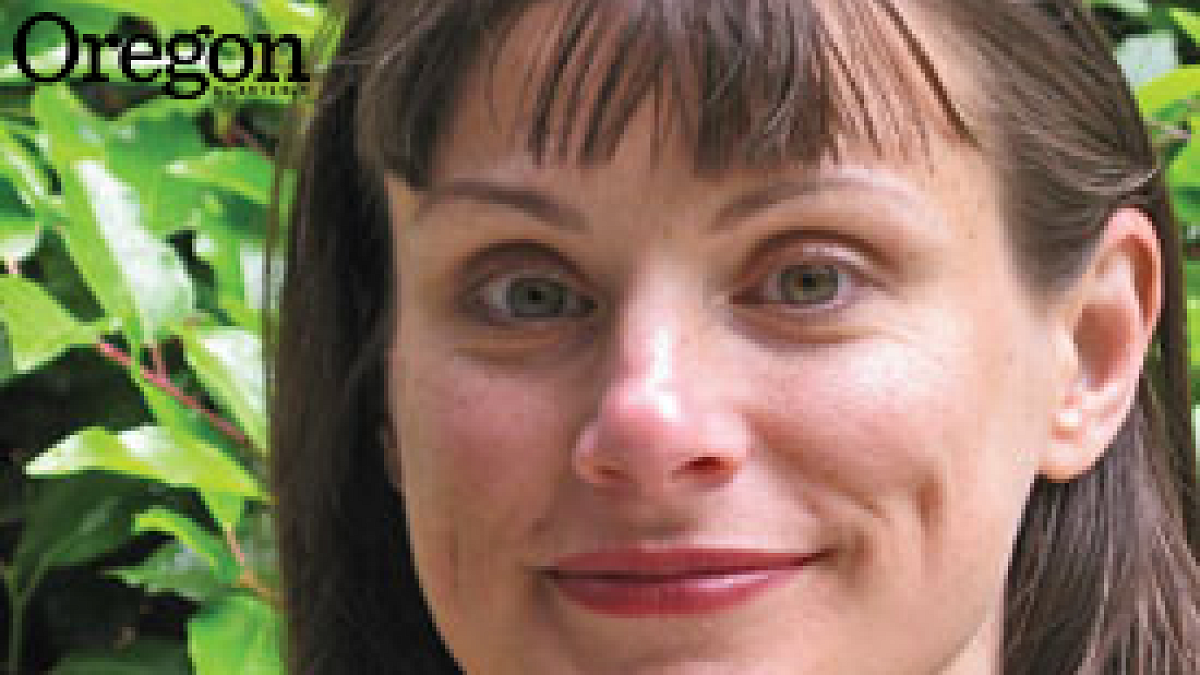In college, Jennifer Reynolds once had a dream summer job abroad in London. Life couldn't have been sweeter. There was only one problem: She worked in private equity.
"It just was a way of making rich people richer," Reynolds says. "It actually had no socially redeeming value." When the company offered her a full-time position, a career stepping-stone into high finance, she turned it down. Reynolds contemplated her options and changed course, turning toward what she believed would be a more rewarding career in education.
Hired by the UO School of Law in 2008 as an assistant professor of civil procedure, mediation, and negotiation, she is also associate director of the nationally ranked UO Appropriate Dispute Resolution (ADR) Center. The center promotes the study and pursuit of alternative solutions to conflict, a relatively new and promising field within the practice of law, which Reynolds believes is an essential part of any prospective lawyer's repertoire.
While lawsuits are inherently adversarial and can lead to drawn-out, antagonistic litigation, ADR techniques—such as mediation—address clients' emotional responses to conflict and the legal aspects of a case by creating conditions for constructive communication. "The mediator is there to help two people who can't otherwise talk to each other have a conversation," she says.
A custody dispute, a divorce, a sexual harassment lawsuit. "Lawyers happen to be with people at these extremely stressful times," Reynolds says, and they need to have a variety of tools to help their clients resolve their problems, "because the single way of going to court is not effective."
Tackling these challenges head-on, Reynolds guides students in her mediation course through simulations during which they take on the roles of different players in a case such as a vicious landlord-tenant dispute. The exercise, she says, is important because, in addition to practicing their skills as legal counsel and mediators, students gain empathy for both sides in a conflict. "It's good to know what's frustrating about mediation," she notes.
Reynolds says new students often believe the law is black and white and that being a lawyer means fighting in court, but ADR offers a different path. "The law itself is never settled," she says. "We can make society what we want it to be if we just put our minds to it, because it's not as firm as it looks."
Name: Jennifer W. Reynolds
Education: BA '92, University of Chicago; MA '96, University of Texas at Austin; JD '07, Harvard University.
Teaching Experience: Visiting professor at the University of Missouri, August 2008. Joined the UO faculty as an assistant professor in 2008.
Awards: Ersted Award for Distinguished Teaching, 2012; Orlando John Hollis Faculty Teaching Award, 2012.
Off-Campus: An avid outdoorswoman, Reynolds also enjoys cooking and spending time with her husband and their three children.
Last Word: "What drives people apart is the lack of respect they feel from the other and the way they don't feel heard. I think oftentimes people are much closer than they realize."
—By Brenna Houck


